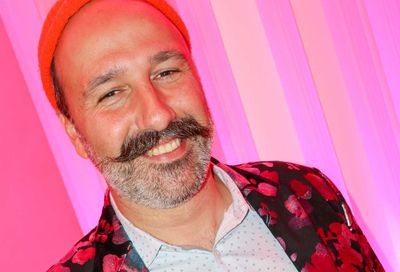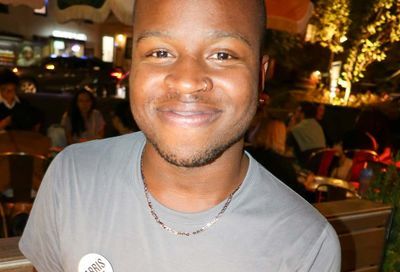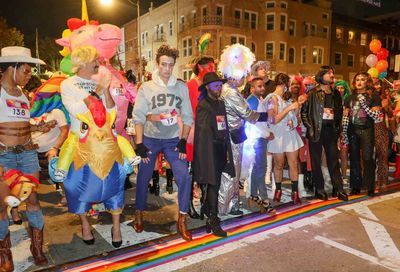Forum: D.C. needs more information on LGBTQ healthcare
How healthy are we? For D.C.'s LGBTQ community, the question is not so easy to answer
![]()
The District of Columbia holds itself out as a model LGBTQ-friendly city. We have a large, diverse, and vibrant LGBTQ community. Same-sex marriage was legalized here well before it was made the law of the land, and LGBTQ residents have the highest possible legal protection from discrimination. A sizeable number of bars, clubs, and civic organizations support our community. It’s truly wonderful that so many of us can feel safe and welcome here.
Yet there is a stunning lack of public information on the health of D.C.’s LGBTQ community. Sporadic reports from the Department of Health shed some light on these issues, but don’t provide the kind of information that we can use to advocate for specific interventions, direct resources, and measure improvements.
There are some things we do know. We know that the LGBTQ community is at a higher risk of drug, alcohol, and tobacco addiction than the public at large. We know that our community suffers from mental illness at unacceptably high rates. Many of us are victims of violence, sexual or otherwise. And we are still dealing with a persistent HIV crisis.
We also know that these challenges are not borne equally within our community — it’s what makes collecting high-quality, granular, and reliable data so critical. It’s also what makes ignoring these problems so easy. To look at the most visible members of our community — white, male, cisgender, and financially well-off — things appear “under control.” But a closer look reveals uncomfortable truths, and we cannot abdicate responsibility by convenience.
Though new HIV infections are declining, epidemic numbers of current infections, especially among African Americans, continue to haunt our community. Teen pregnancy is a greater risk for lesbian and bisexual teenagers than their straight counterparts, yet they receive virtually no funding or public attention. Like many LGBTQ issues, they simply are not understood by the broader public. And our trans brothers and sisters, who suffer from extraordinary rates of violence, are often totally overlooked.
Too many of us are suffering, and we are not being counted. Our addictions, our illnesses, our traumas remain in the shadows because we simply don’t have the data. But we can change our situation.
We should support the establishment of permanent public health monitoring and reporting for LGBTQ residents of the District. Last month, Councilmembers David Grosso and Trayvon White introduced the LGBTQ Health Data Collection Amendment Act of 2018, which would mandate the Department of Health to publish an annual, detailed report on the health of DC’s LGBTQ residents. It would also require the Office of the State Superintendent of Education and the DOH to add questions about gender identity and sexual preference in existing annual data collection activities. Moreover, we should push the DOH to create an LGBTQ community advisory group, and attend meetings where our fates are decided. A community advisory group would address health issues directly affecting our community and inform our government so that it can respond quickly to new challenges.
The DOH has taken some steps in this direction, but progress has stalled and needs to be revived. It needs to include all our communities, especially the most marginalized and vulnerable. Failure to do so runs the risk of not merely ignoring those who need the most help, but burying them under an illusion of widespread health that masks those who suffer uncounted.
To highlight these problems is not to suggest that the D.C. government is doing nothing. We know that D.C. is responsible and responds to problems in our communities when made aware. The DOH has been working to curtail new HIV infections and to assist those infected with diagnosis and treatment. But to congratulate successes without understanding the entirety of the problem isn’t enough. We need information — real information — that we can use to hold our leaders accountable. And we need to understand the breadth and depth of the challenges facing our community, so we can live healthy lives.
Steven Feit is a D.C. resident and member of the Health Working Group at the D.C. Center for the LGBT Community.
Support Metro Weekly’s Journalism
These are challenging times for news organizations. And yet it’s crucial we stay active and provide vital resources and information to both our local readers and the world. So won’t you please take a moment and consider supporting Metro Weekly with a membership? For as little as $5 a month, you can help ensure Metro Weekly magazine and MetroWeekly.com remain free, viable resources as we provide the best, most diverse, culturally-resonant LGBTQ coverage in both the D.C. region and around the world. Memberships come with exclusive perks and discounts, your own personal digital delivery of each week’s magazine (and an archive), access to our Member's Lounge when it launches this fall, and exclusive members-only items like Metro Weekly Membership Mugs and Tote Bags! Check out all our membership levels here and please join us today!























You must be logged in to post a comment.